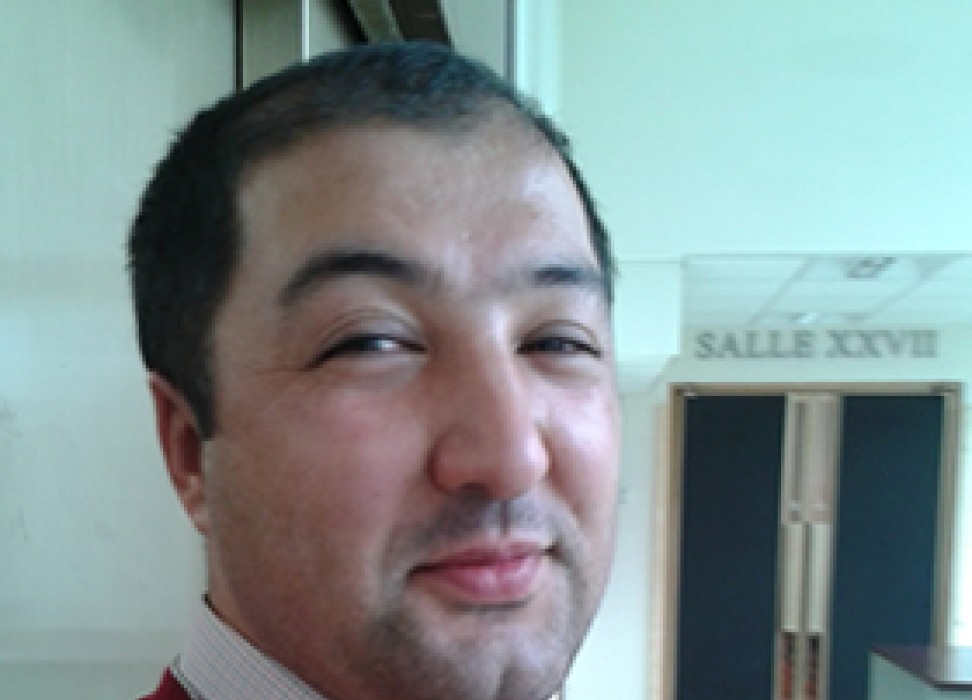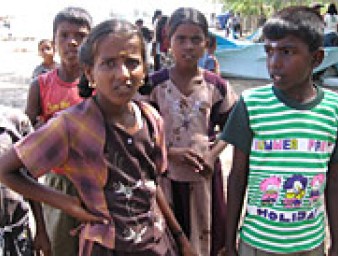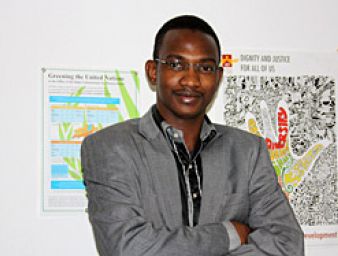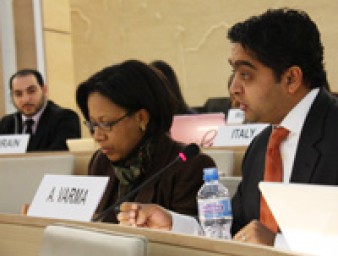Protecting and promoting minority rights in Kyrgyzstan
03 March 2015

Utkir Dzhabbarov wishes to ensure that the minorities in Kyrgyzstan enjoy the right to due process and access to redress and he believes that learning how to use international human rights instruments and mechanisms will help.
“I am here to gain new knowledge and new experience and to practice new skills and see how the UN mechanisms work in reality and learn how to cooperate with them,” he said.
Dzhabbarov, who is a member of the Uzbek minority of Kyrgyzstan, is a senior attorney with the Kyrgyzstan-based NGO “Spravedlivost” (Justice). The NGO focuses on protection of human rights, including torture and arbitrary detention, and monitors developments in the area of inter-ethnic relations.
Spravedlivost was the 2014 winner of the Max van der Stoel Award for its outstanding work in improving human rights in Kyrgyzstan. The award from the Organization for Security and Co-operation in Europe (OSCE) recognized its support on protection of minority rights in the country.
Dzhabbarov recently participated in the UN Human Rights Office Minority Fellowship Programme in Geneva. The five-week programme offers national, ethnic, religious and linguistic minorities the opportunity to learn about the United Nations human rights system with the aim of contributing to better protection and promotion of minority rights in their home countries.
There is still a lack of confidence to the state structures by ethnic minorities because of widespread cases of latent discrimination, Dzhabbarov said. In 2010, violence between ethnic Kyrgyzs and the Uzbek minority in the south of the country led to hundreds of deaths and thousands being displaced. The Independent Commission of Inquiry established to investigate the matter found serious violations of international and national law and issued recommendations to help build peace, stability and reconciliation in the country.
Dzhabbarov said that the after effects of the conflict are still being felt in Kyrgyzstan. He noted that there are confirmed instances in which ethnic minorities were held in arbitrary detention for long periods without charges.
“No one can guarantee the peace and security in the country because the situation is still tense and justice still has not been re-established,” Dzhabbarov said.
The opportunity to learn more about protection of minority rights under international human rights law was an inspiration, Dzhabbarov said. Witnessing in reality how the instruments are used through the mechanisms to better protect rights will help him with the work his organization is doing back home.
“When you understand what things are and how they work, it inspires you to use them and to continue working on human rights protection,” he said.3 March 2015




